People Need More Sleep
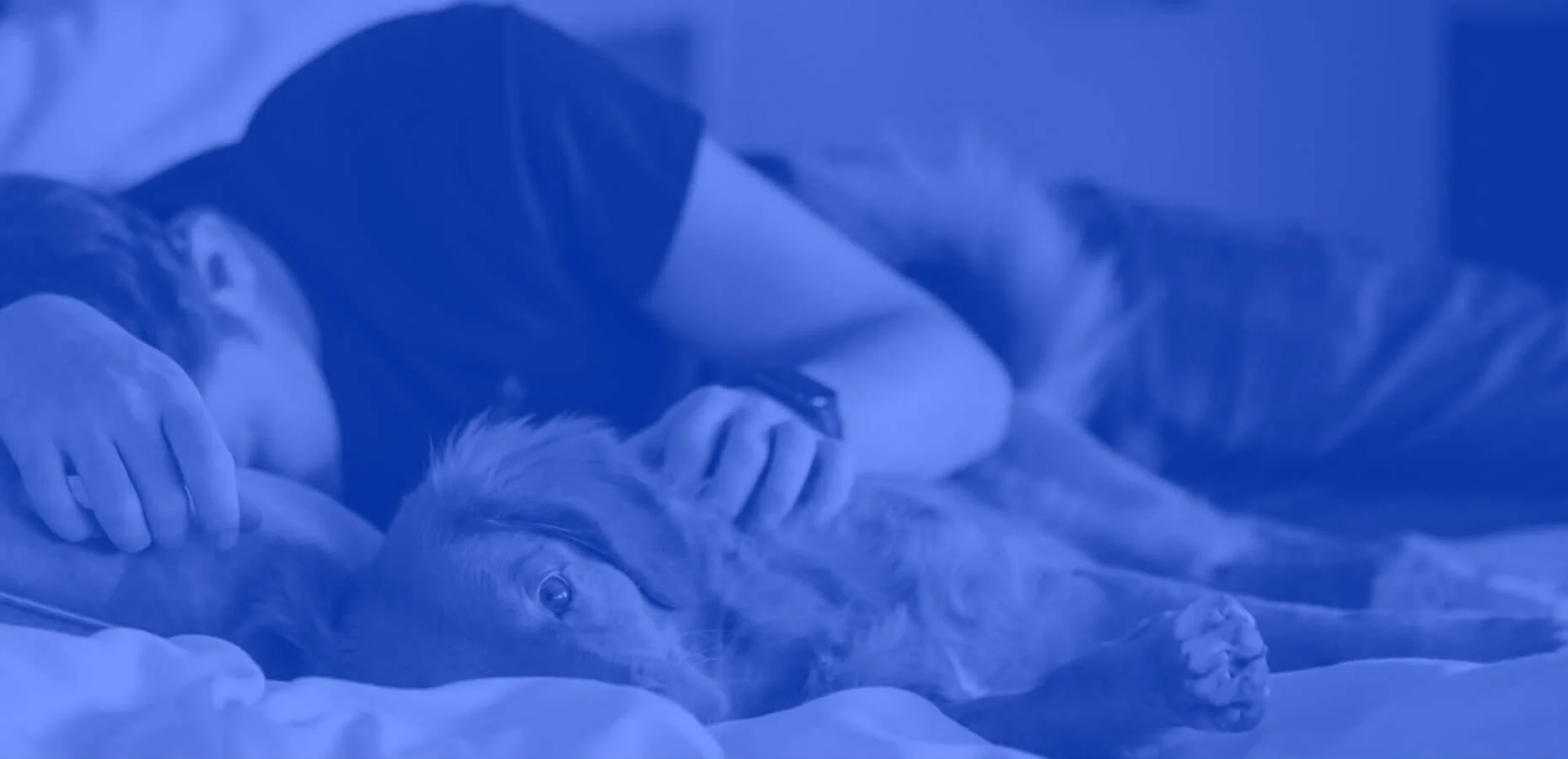
Sleep is one of the most essential functions of the human body. It is crucial to both physical and mental health. For March's National Sleep Awareness Month we used our Realtime Research survey tool to poll 1024 Americans to find out their sleep patterns.
Sleep is one of the most essential functions of the human body. It is crucial to both physical and mental health and helps to maintain energy levels and brain function. March is National Sleep Awareness Month making it a great time for people to reflect on how much sleep they are getting, and to evaluate if any changes to their sleep routine are necessary. Invisibly used it’s Realtime Research tool to poll 1024 Americans to find out their sleep patterns. — Results featured in Forbes
Highlights
- We surveyed 1024 people to find out how much sleep they are getting, how satisfied they are with their sleep, and if they think their sleep quality can be improved.
- The results show that the overwhelming majority of respondents, 82%, aren’t sleeping well or thought their sleep patterns could be better.
- Men are getting the best quality sleep at more than twice the rate of women and non-binary respondents.
- Only 14% of respondents have a consistent daily sleep schedule.
Results
The majority of respondents across all gender lines said that they frequently did not sleep well, waking up feeling tired and unrested. A significant portion of respondents, 81.7%, said that they did not usually sleep well and woke up tired and unrested, and feel their sleep could use some improvement. In total, only 18.3% of respondents said that they sleep “very well.”
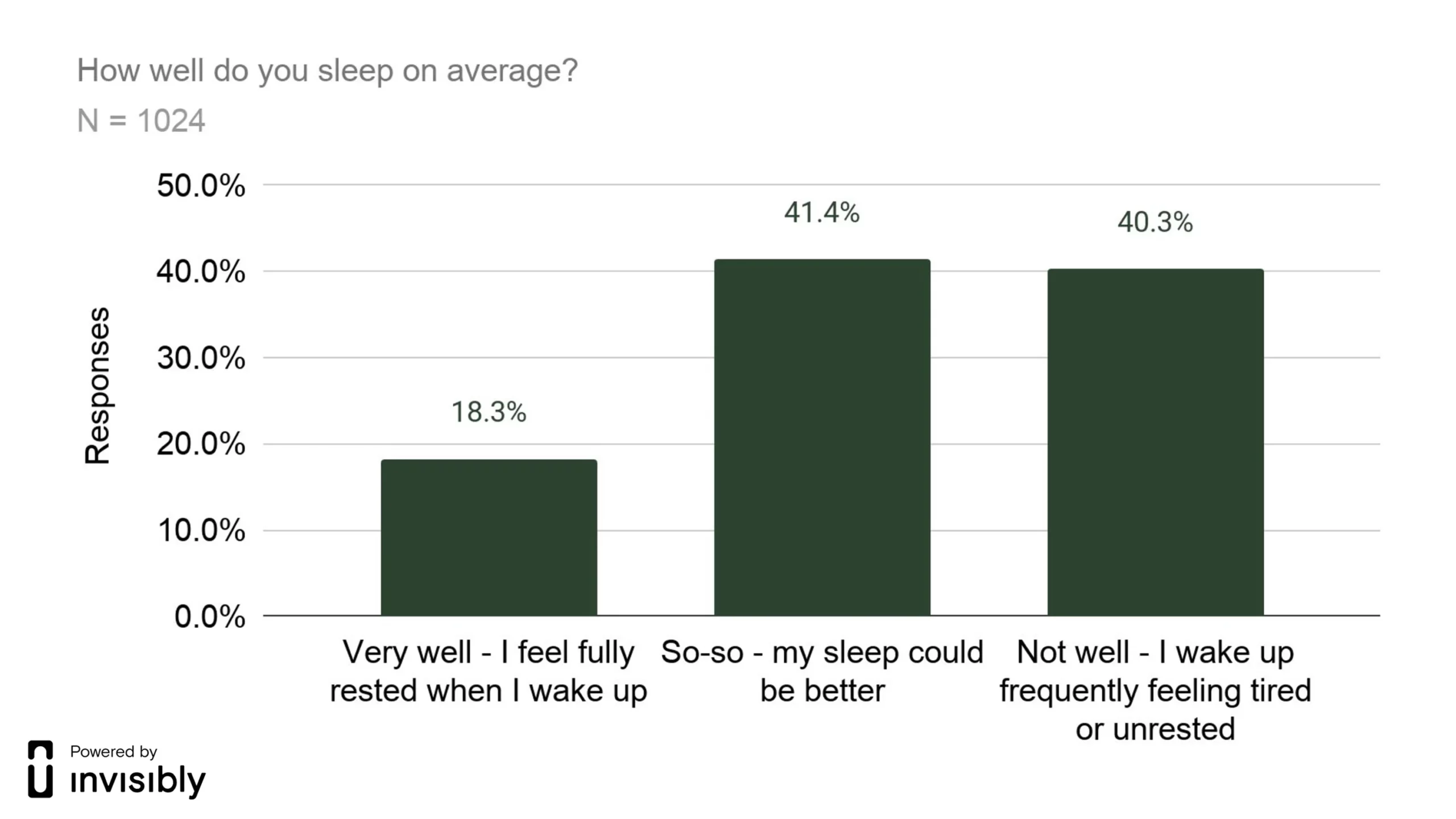
When asked how well they sleep on average, 29% of male respondents said they sleep very well, compared to only 13% of female respondents saying they sleep very well. In the non-binary category, only 11% of those respondents said they sleep very well. In the so-so sleep category, women came in at 48%, with men at 35% and non-binary gender at 30%.
Non binary gender are the poorest sleepers in this survey, with 59% of respondents saying they don’t sleep well. Male and female respondents reported not sleeping well too, but only at 36% and 39%, respectively.
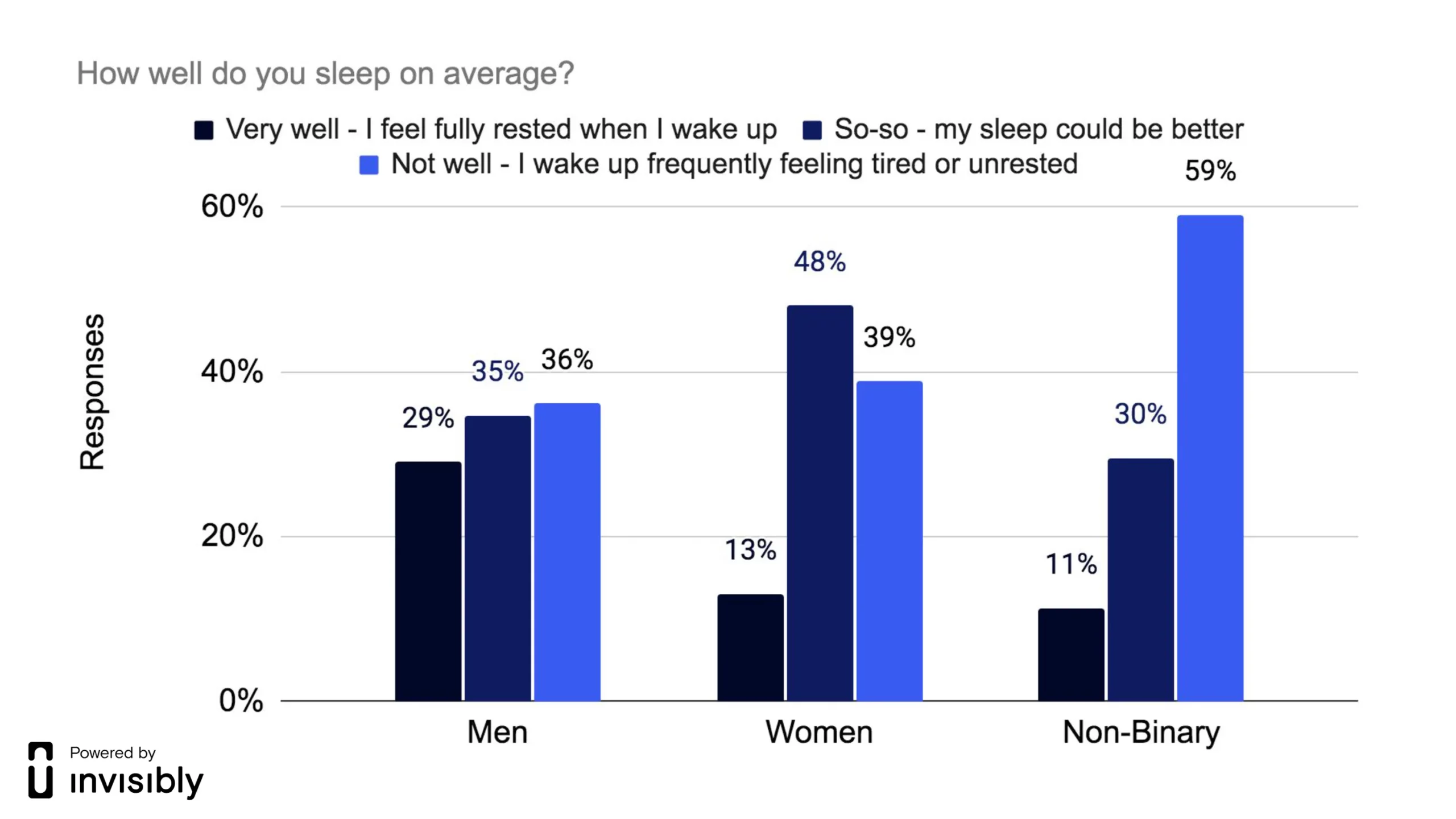
Respondents were then asked how much sleep they were getting each night.
When we analyzed the data, we found a majority 43.2% of respondents said that they get between 6-8 hours of sleep a night. 29% of respondents reported getting less than 6 hours of sleep each night, compared to 18.5% of respondents that get between 8-9 hours of sleep each night. 9.3% of the respondents reported getting 9 hours or more of sleep.
21% of men said they get 9+ hours of sleep each night, compared to only 5% of women and 9% of non-binary respondents. The majority of respondents reported getting 6-8 hours of sleep each night, with women leading at 48%, followed by men at 43% and non-binary gender at 31%. Non-binary gender reported the least amount of sleep, with 48% getting less than 6 hours a night.
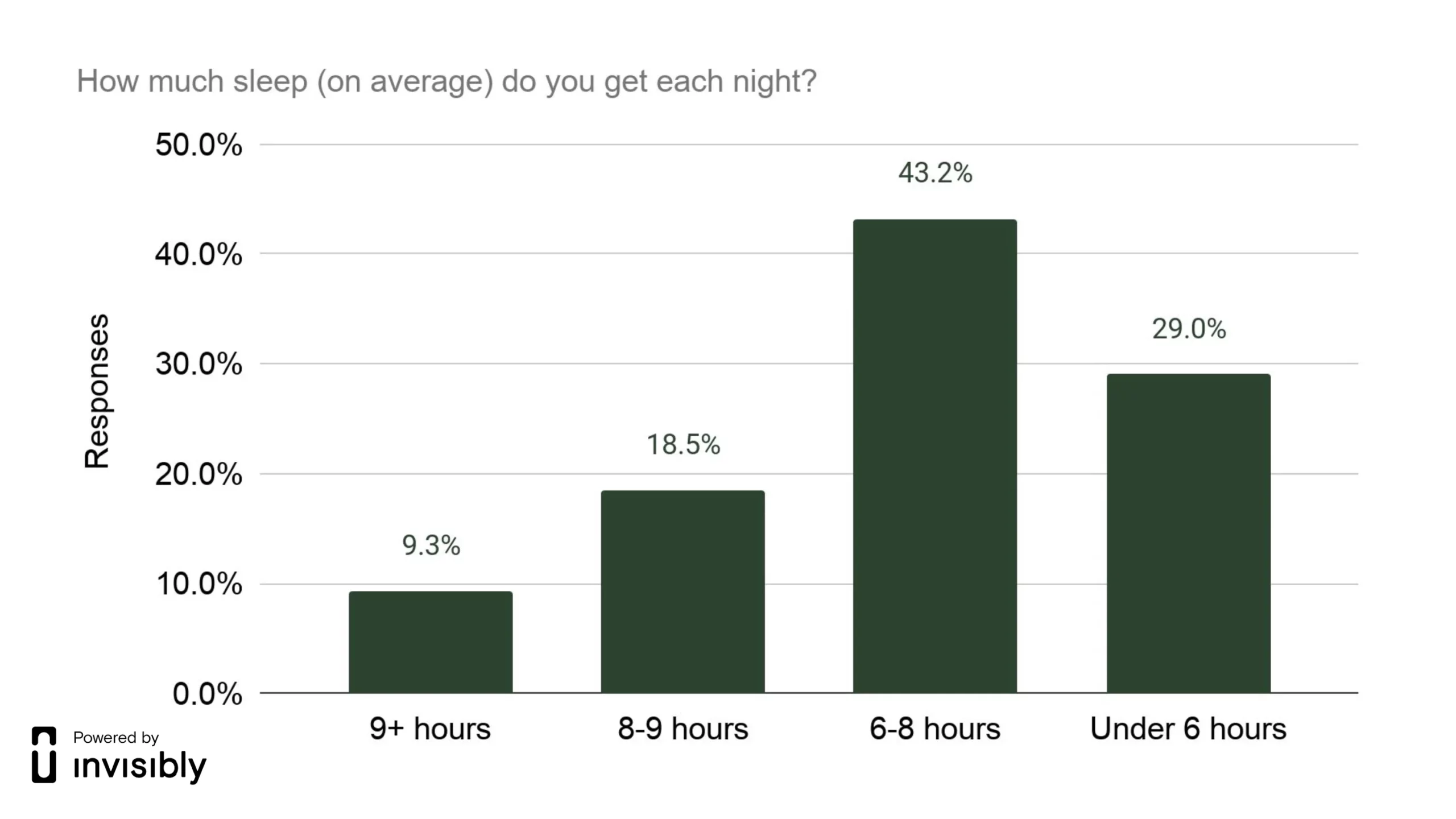
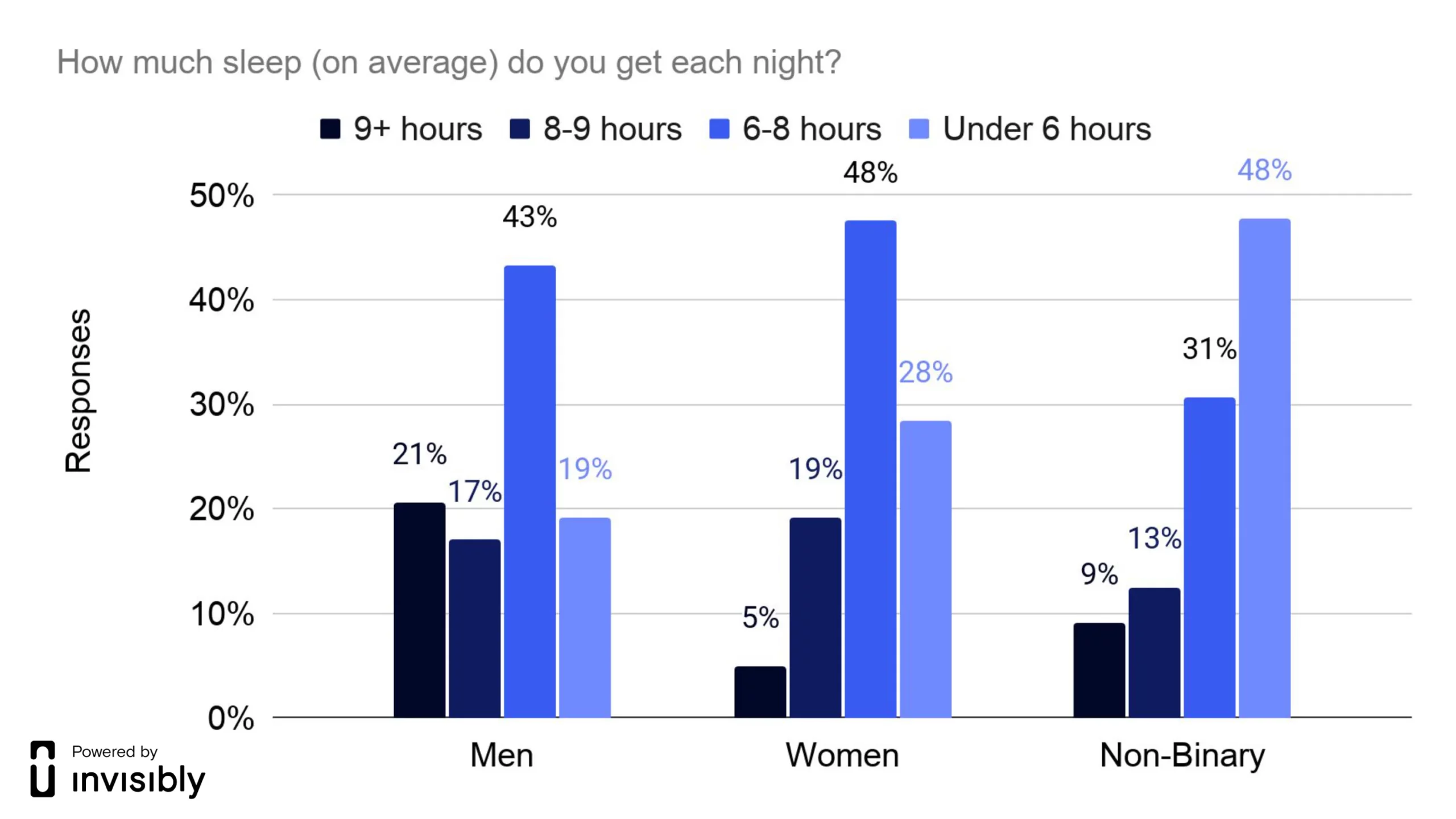
As part of the survey, we asked respondents if they went to bed at the same time each night. The majority 54% said their sleep schedule varies daily and only 14% have a consistent sleep schedule. Men were most likely to keep a consistent sleep time. Survey results showed that 30% went to sleep at the same time daily compared with only 10% of women and 10% of those identifying as non-binary.
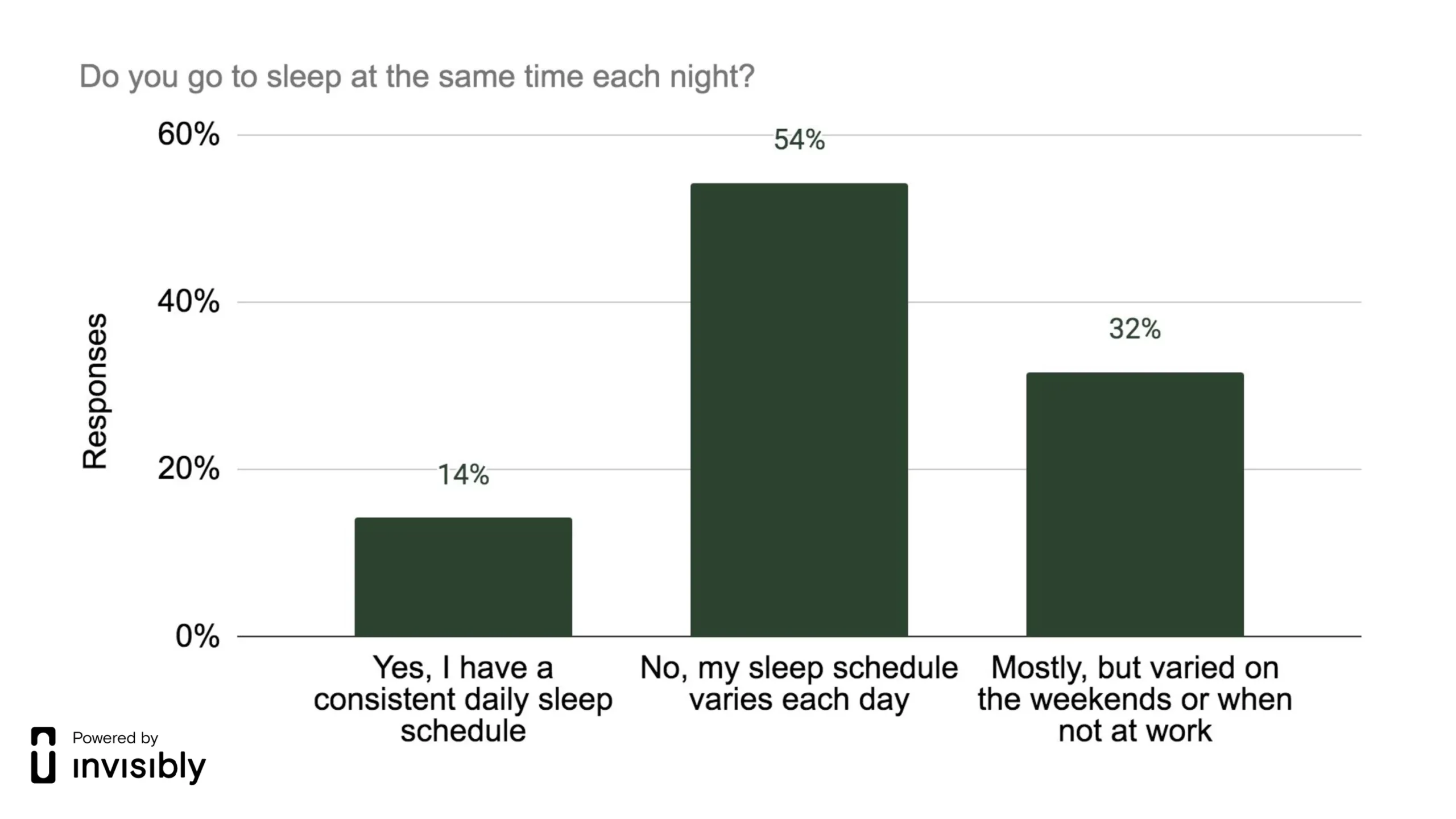
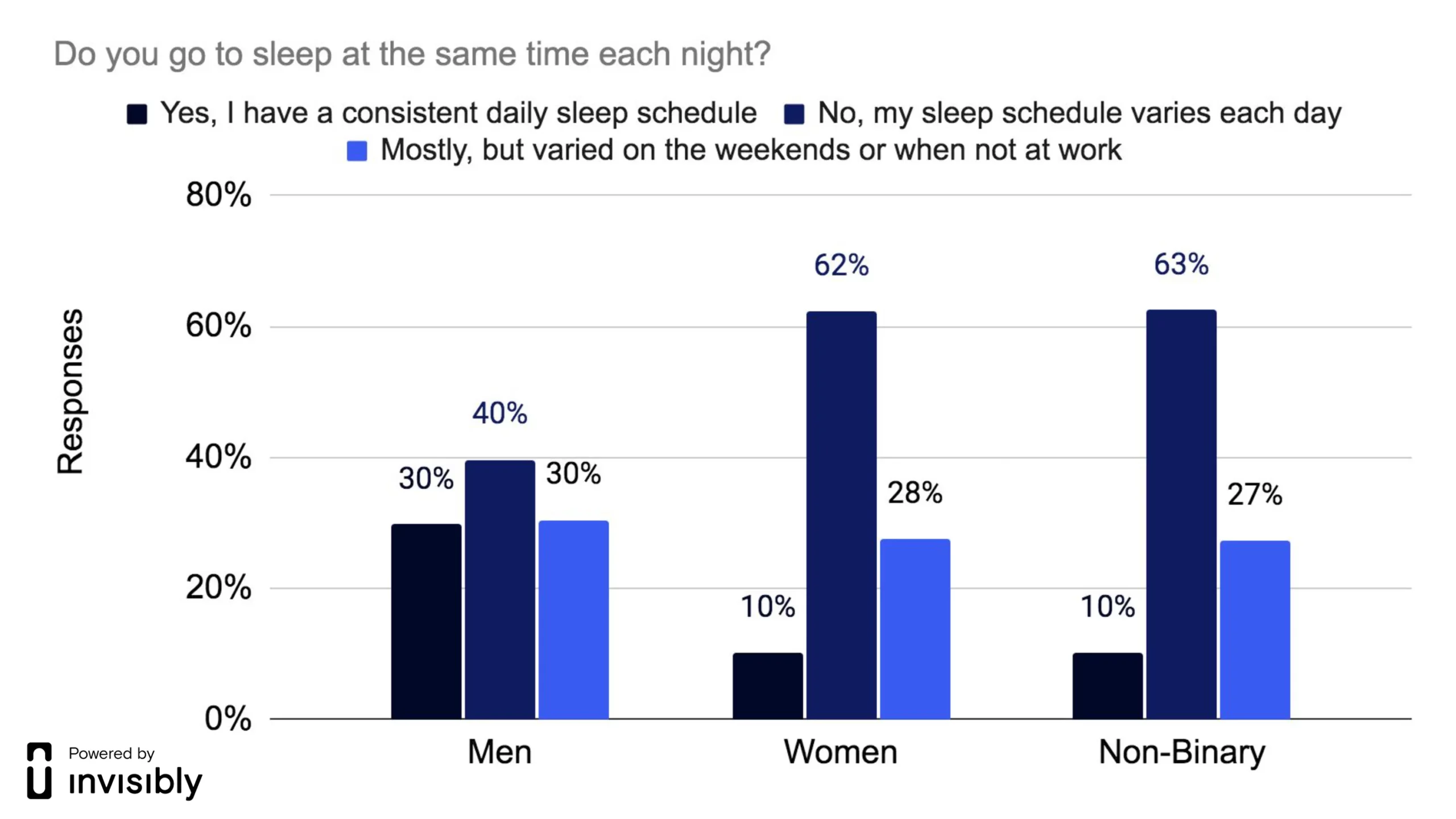
We were curious as to how (if at all) the Covid pandemic has affected sleep patterns. The majority 55% of respondents said that Covid had not affected their sleep, while 45% said that it had.
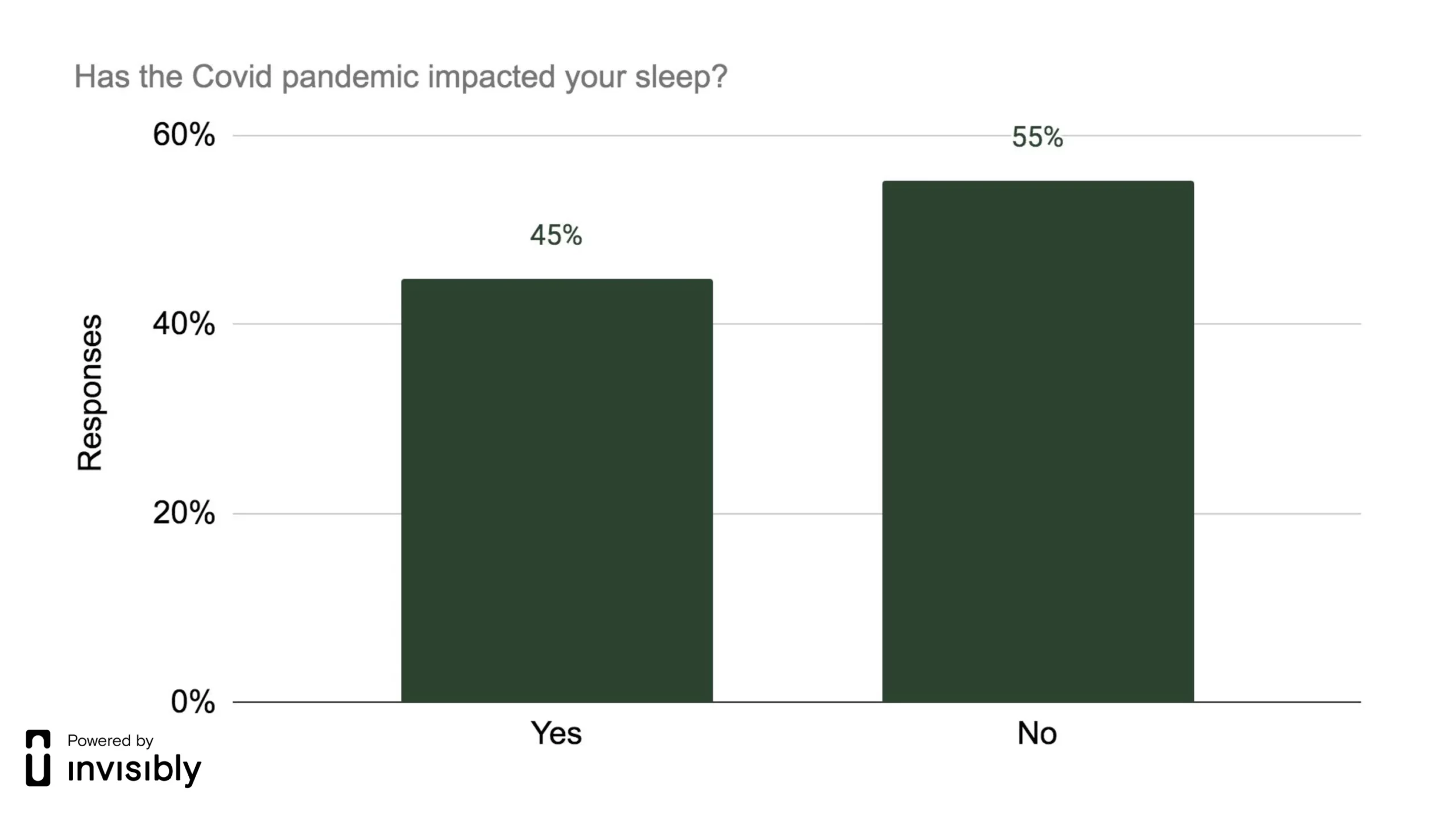
Those respondents identifying as non-binary were impacted the most with 52% saying their sleep had been affected by the Covid pandemic. 48% of women thought that their sleep had been affected in some way, compared to only 34% of men. Men were most likely to say that the Covid pandemic had not affected their sleep; 66% said there had been no change since the pandemic started.
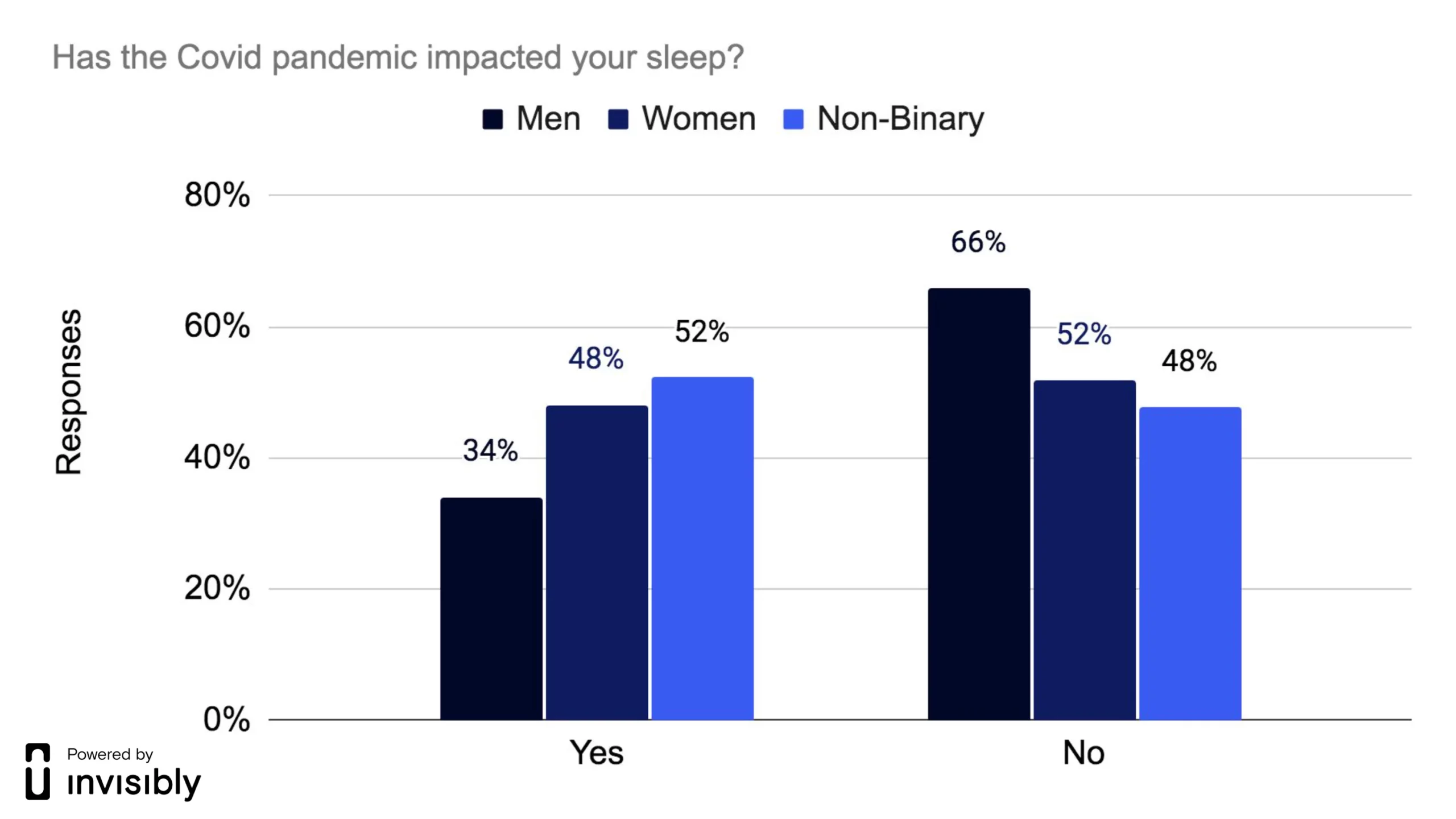
Respondents were asked if they use any device or apps to track their sleep. The majority 81% said they did not track their sleep. 9% said they did use an app or device to track their sleep while 10% said that they do track their sleep but did so using other methods, not with an app or device.
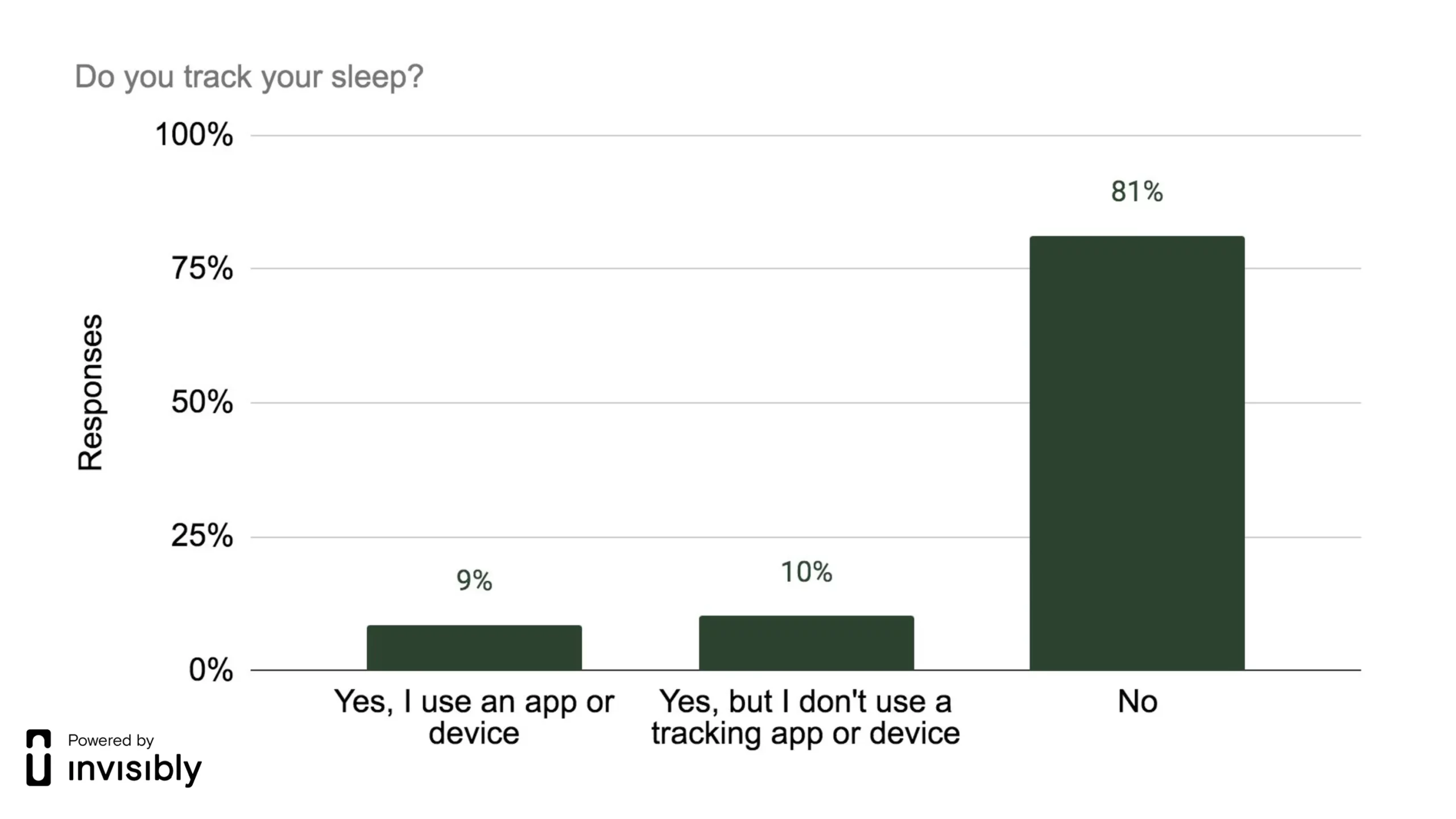
At 84%, non-binary respondents were the least likely to track their sleep using an app or device, followed by women at 82% and men at 78%. Interestingly, men were the most likely to use an app or device to track their sleep, but only 12% do, compared with women at 8% and non-binary respondents at 7%.
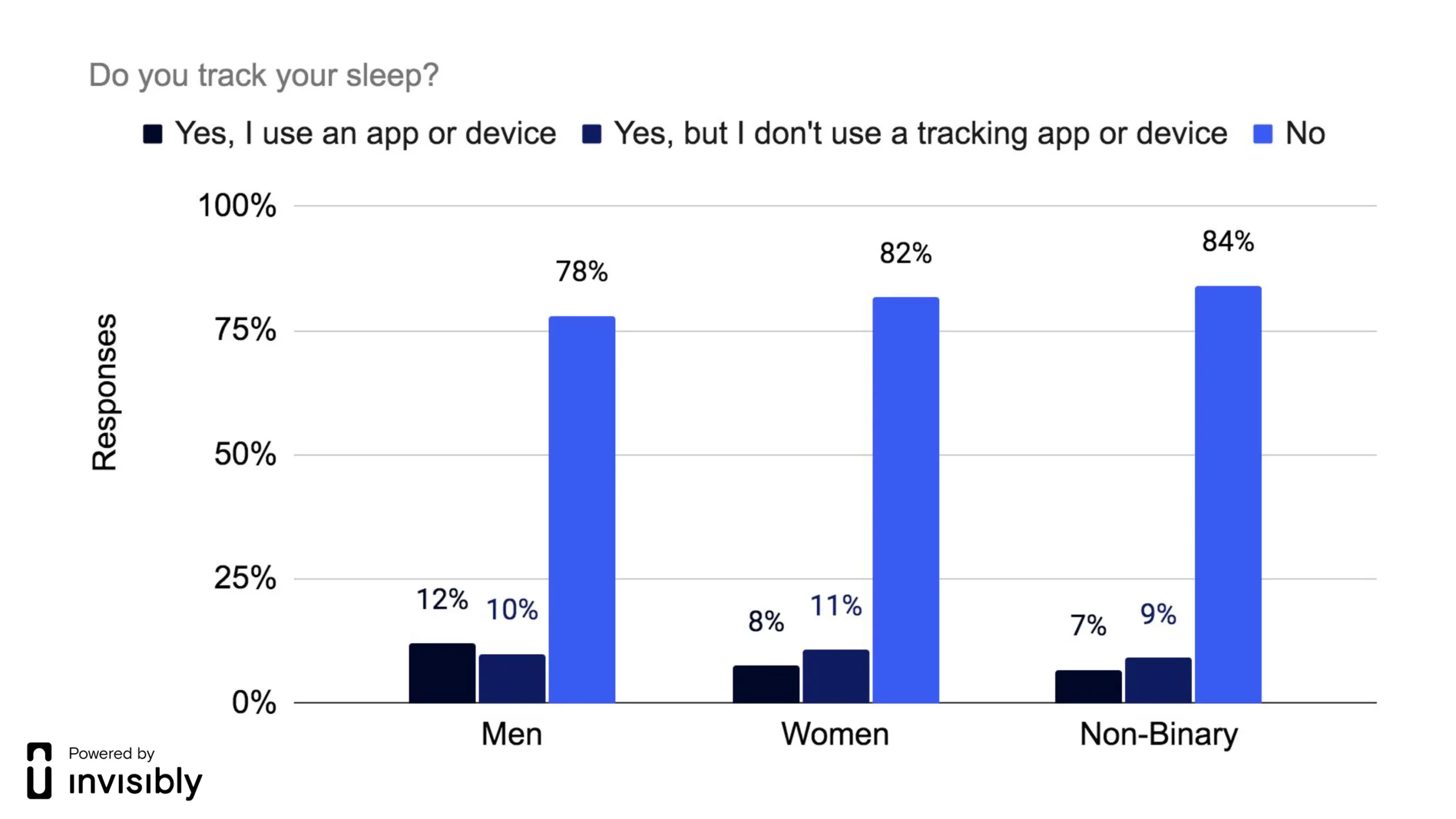
Of the 1024 respondents, 60% identified as female, 25% as male, and 15% identified as non-binary/non-gender conforming.
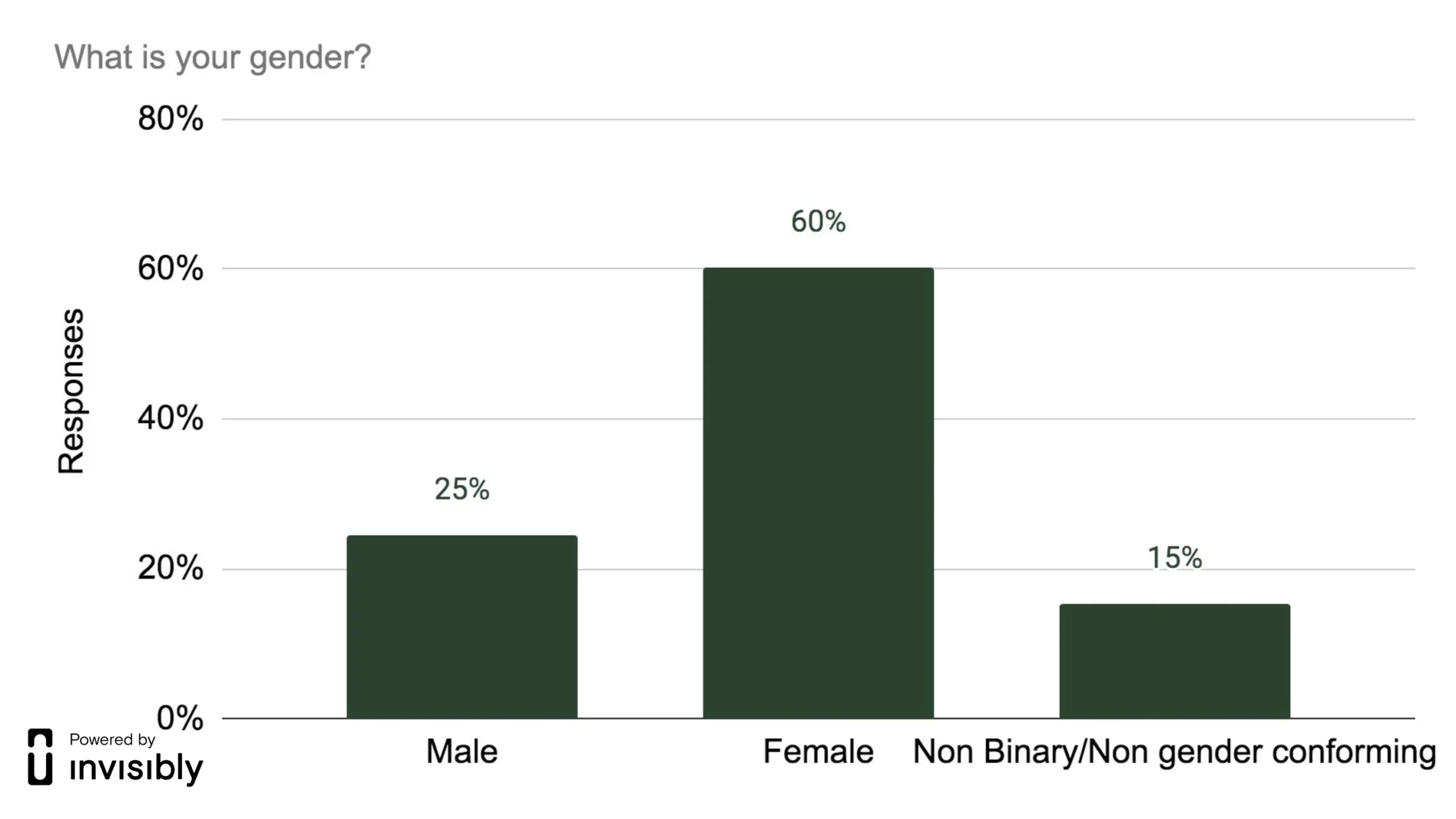
The Process
From March 2nd to March 6th, 2021, Invisibly questioned 1024 Americans about their sleeping patterns to coincide with National Sleep Awareness Month. Invisibly used their Realtime Research polling tool to learn how long people sleep, what their sleep quality is, and if they think their sleep could be improved. We also asked about changes in sleep during Covid to see if the pandemic had played a factor in people’s sleeping habits.
We Asked
- How well do you sleep on average?
- How much sleep (on average) do you get each night?
- Do you go to sleep at the same time each night?
- Has the Covid pandemic impacted your sleep?
- Do you track your sleep?
- What is your gender?
- What is your age?
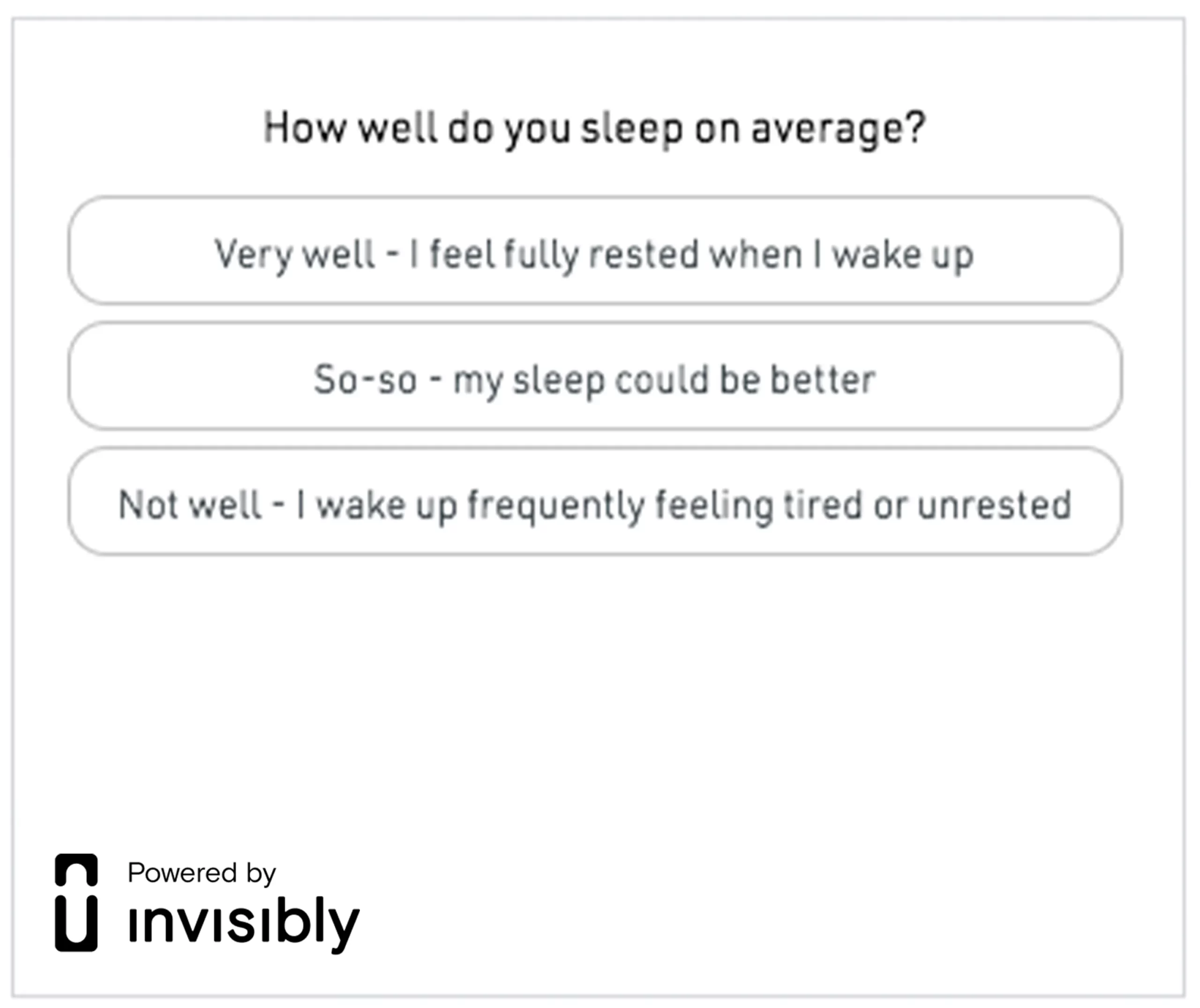
Discussion
We learned that many Americans are lacking proper sleep and that includes people who identify as men, women and non-binary. Perhaps not surprisingly, those who are non-binary reported the least sleep, with men reporting the best quality sleep. As few things impact people’s physical and mental health as much as sleep (or lack thereof), National Sleep Awareness Month offers a great opportunity for people to think about their sleeping habits and consider what they can do to improve them. Getting a restful night’s sleep can help everyone to reduce stress, think more clearly, perform better, and lower the risk for serious health problems like diabetes and heart disease.
Invisibly Realtime Research surveys differ from traditional online surveys in that the questions are shown to the user on web pages in place of an ad (Figure 1). Unlike Google Surveys, which block access to content until the questions are answered, Realtime Research surveys are optional, thus ensuring that participants are responding voluntarily.

Invisibly
Use your data to access premium content you love.
